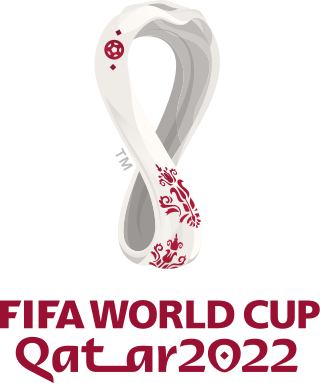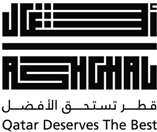The political system of Qatar runs under an authoritarian semi-constitutional monarchy with the emir as head of state and chief executive, and the prime minister as the head of government. Under the Constitution of Qatar, the partially-elected Consultative Assembly has a limited ability to reject legislation and dismiss ministers. The second general election was held in 2021; political parties are banned and all candidates had to run as independents.

The Qatar national football team, nicknamed "The Maroons", represents Qatar in international football, and is controlled by the Qatar Football Association, which is affiliated with the Asian Football Confederation (AFC) and comes under the global jurisdiction of world football’s governing body FIFA. They play their home games at Khalifa International Stadium and Jassim Bin Hamad Stadium. The latter is considered the home stadium.

Sheikh Tamim bin Hamad bin Khalifa Al Thani is Emir of Qatar, reigning since 2013.

Qatar officially the State of Qatar, is a country in West Asia. It occupies the Qatar Peninsula on the northeastern coast of the Arabian Peninsula in the Middle East; it shares its sole land border with Saudi Arabia to the south, with the rest of its territory surrounded by the Persian Gulf. The Gulf of Bahrain, an inlet of the Persian Gulf, separates Qatar from nearby Bahrain. The capital is Doha, home to over 80% of the country's inhabitants, and the land area is mostly made up of flat, low-lying desert.

Giovanni Vincenzo Infantino is a Swiss-Italian football administrator and the president of FIFA since February 2016. He was re-elected in June 2019 and in March 2023. In January 2020, he was also elected a member of the International Olympic Committee.

Lesbian, gay, bisexual, and transgender (LGBT) people in Qatar experience legal persecution. Sexual acts between males are illegal in Qatar, with punishment for both Muslims and non-Muslims of up to three years in prison. For Muslims duly convicted in the sharia courts, a judicial sentence of capital punishment for homosexuality is a possibility, though it has never been imposed. Abuse such as beatings and torture, and forced "conversion therapy" have also been used by police and other authorities. There is no explicit corresponding prohibition of consensual sex between women, although sharia disallows sexual activity outside of marriage.

The 2022 FIFA World Cup was the 22nd FIFA World Cup, the world championship for national football teams organized by FIFA. It took place in Qatar from 20 November to 18 December 2022, after the country was awarded the hosting rights in 2010. It was the first World Cup to be held in the Middle East and Persian Gulf countries, and the second held entirely in Asia after the 2002 tournament in South Korea and Japan.
The state of human rights in Qatar is a concern for several non-governmental organisations, such as the Human Rights Watch (HRW), which reported in 2012 that hundreds of thousands of mostly South Asian migrant workers in construction in Qatar risk serious exploitation and abuse, sometimes amounting to forced labour. Qatar is an authoritarian and de facto absolute monarchy under the House of Thani. Qatari law also does not permit the establishment of political bodies or trade unions. Awareness of human rights abuses in Qatar grew internationally after Qatar's controversial selection to stage the 2022 FIFA World Cup.

Sport in Qatar is primarily centred on football in terms of participation and spectators. Additionally, athletics, basketball, handball, volleyball, camel racing, horse racing, cricket and swimming are also widely practised. There are currently eleven multi-sports clubs in the country and seven single-sports clubs.

The Qatar 2022 FIFA World Cup bid was a successful bid by Qatar to host the 2022 FIFA World Cup. With a population of 2 million people, Qatar was the first Arab state to host the World Cup. Sheikh Mohammed bin Hamad bin Khalifa Al-Thani, son of Hamad bin Khalifa Al Thani the then Emir of Qatar, was the chairman of the bid committee. Qatar promoted their hosting of the tournament as representing the Arab World, and has drawn support from across the member states of the Arab League. They also positioned their bid as an opportunity to bridge the gap between the Arab World and the West.

Lusail Stadium is a football stadium in Lusail, Qatar. Owned by the Qatar Football Association, it is the largest stadium in Qatar and the Middle East by capacity; one of eight stadiums built for the 2022 FIFA World Cup, it hosted the 2022 FIFA World Cup final game between Argentina and France on 18 December 2022. It is currently the second largest football stadium in Asia but eventually will reduce its current capacity of 88,966 to 40,000 in the near future.

Education City Stadium is a football stadium which is located in Al Rayyan, Qatar, and was built as a venue in time for the 2022 FIFA World Cup held in Qatar. The stadium is located within several university campuses at the Qatar Foundation's Education City. Following the FIFA World Cup, the stadium will retain 25,000 seats for use by university athletic teams. On 3 September 2020, the stadium hosted its first official match, played in the 2020–21 Qatar Stars League season.
Nepalis in Qatar are migrants from Nepal to Qatar, mostly migrant workers and permanent residents, as well as their locally born descendants. As of May 2017, 400 thousand Nepali Citizens lived in Qatar as migrant workers, Nepal is the second largest expatriate community in Qatar. While there are Nepalese working in the business and administrative sectors of Qatar, most workers from Nepal fall under the umbrella of unskilled labor, and hold jobs in sectors such as construction and landscaping. Many workers from Nepal are hired to work on the construction of stadiums and railways that are being designed for the 2022 FIFA World Cup to be held in Qatar. According to Time Magazine, due to the terrible working conditions in Qatar, a Nepali worker dies every other day.

The kafala system is a system that exists in many of the Arab countries in the Middle East, including most of the countries of the Arabian Peninsula, which involves binding migrant workers to a specific employer throughout the period of their residence in a country. Essentially the same system existed in Israel under the label "binding labour," until that country's Supreme Court eliminated it in 2006. The kafala system is noted by human-rights and labor-rights organizations for facilitating the exploitation of migrant workers, who are unable to quit their jobs for their term of contract and dependent on their employer for their visa and legal status in the country.

Ashghal is the Public Works Authority of Qatar headquartered in Al Dafna, Doha. Ashghal was established based on the Emiri Decree issued by the Father Emir Sheikh Hamad bin Khalifa Al Thani on 20 January 2004, as an autonomous body to design, deliver and manage all infrastructure-related projects as well as public amenities of the State. Ashghal is responsible for the construction and maintenance of local roads, drainage systems, highways and public buildings like mosques, schools, hospital, health centers, parks, etc.

Al-Thumama Stadium is a football stadium in Al Thumama district in Doha, Qatar, located approximately 13 km south of the city center. It hosted the 2022 FIFA World Cup held in the country.

Cinema in Qatar is a relatively young industry that evolved as part of the country’s plans to develop different local sectors with the aim of accumulating international recognition and status. Many major steps were taken to implement a long-term plan to develop the infrastructure as well as giving opportunities to local talents to have a platform that establishes their presence within the film industry with the support of the Doha Film Institute, and their various grants, workshops and festivals. The Qatar National Vision 2030 has three major pillars to development: human, social economic and environmental; this vision provides frameworks that enable the development of different elements within Qatar and its society; one of which is the high importance put on developing and cultivating artistic talents to represent and define Qatar on a global scale. Another important element in developing the movie industry is the influence and vision of Sheikha Al Mayassa who founded Doha Film Institution; the establishment of film as a mode of storytelling was imperative because it serves the purpose of granting Qatar a global presence through the talents that are supported and cultivated because of her initiative. The film industry plays a role in amplifying the Qatari national identity alongside the identity of the Arab world as a whole.
Prior to qualifying as host nation, Qatar had never qualified for the FIFA World Cup since the country's independence in 1971. While Qatar has been a regular participant in the continental AFC Asian Cup, the national side has always fallen short in the final stage of World Cup campaigns. By hosting the 2022 FIFA World Cup and its failure to qualify for the 2018 FIFA World Cup held in Russia, Qatar became the only nation to play in World Cup without qualifying for it and the second nation after Italy to qualifying for the World Cup as hosts after being absent in all previous World Cup before.
There have been several criticisms and controversies of perceived human rights violations related to the organisation and hosting of the 2022 FIFA World Cup in Qatar. There have long been concerns for the state of human rights in Qatar, with the state accused of sportswashing in hosting the World Cup.











